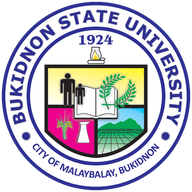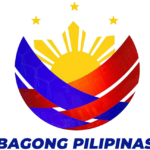Home » Intellectual Property & Technology Transfer Unit » Intellectual Property Policy
In this Intellectual Property (IP) Policy, the University shall also strive to accomplish the following specific objectives to:
- Promote production, utilization and commercialization of research-based innovations, invention and instructional materials that showcase innovativeness and creativity;
- Provide adequate support for faculty researchers and enhance research productivity of BukSU faculty and students;
- Formulate policies on the registration, development, evaluation and review of generated innovations, inventions and patents;
- Adapt national government aid rules regarding IP protection and disposition of IP; and compel in the IP Policy the reporting and disclosure obligations imposed by law;
- Conduct information dissemination and perform awareness campaign among all stockholders – students, employees and public – of the various types of Intellectual Property, the rights associated with each type, their contribution to innovation, and this IP Policy as well as incorporate IP, knowledge/technology transfer and entrepreneurship courses in the curriculum.
Nothing in this IP Policy shall modify, amend, derogate or prejudice intellectual properties that will be owned by employees or the University under the IP Code and other existing and related laws.
Definition
Intellectual Property (IP)
Refers to creations of the mind, such as: inventions; literary and artistic works; symbols; names and images used in commerce. It is categorized into two: (i) industrial property includes patents for inventions, trademarks, industrial designs and geographical indications; (ii) Copyright covers literary and artistic works, architectural designs, and books.
Intellectual Property Right (IPR)
Refers to the right of the Researchers, Innovators, Inventors, or Instructional Materials developers that aims to ensure that the work is due recognized and credited to them as a product of steadfast effort to generate new knowledge. IPR can be a Copyright, Trademarks, Patents, and Utility Models.
Copyright
Is a form of Intellectual Property (IP) which protects the rights of authors and creators of literary and artistic works. It is a legal protection extended to the owner of the rights in an original work.
Original work refers to every production in the literary, scientific and artistic works enumerated in the IP Code that includes books and other writings, musical works, films, paintings and other works, and computer programs.
Trademark
Is a tool used to differentiate goods from services. It can be one word, a group of words, sign, symbol, logo, or a combination of any of these. It is considered as a very effective tool that makes the public remember the quality of goods and services. Once a trademark becomes known and liked, the public will patronize the products and services. In some cases, the owner of the trademark may earn revenues by licensing its use by another person or by franchising agreements.
Patents
Is a grant issued by the government through the Intellectual Property Office of the Philippines (IPOPHL). It is an exclusive right granted for a product, process or an improvement of a product or process which is new, inventive, and useful. This exclusive right gives the inventor the right to exclude others from making, using or selling the product of his invention during the life of the patent. It has a term of protection of twenty (20) years providing an inventor significant commercial gain. In return, the patent owner must share the full description of the invention. This information is made available to the public in the form of the Intellectual Property Official Gazette and can be utilized as basis for future research and will in turn promote innovation and development.
Utility Model
Is a protection which is designed to protect innovations that are not sufficiently inventive to meet the inventive threshold required for standard patents application. It can be any useful machine, tools, product, composition, process, improvement of the existing one or part of it that is of practical utility, novelty, and industrial applicability.
IP Policies
Are the policies on Intellectual Property of Bukidnon State University and its amendments.
Researcher/Author
Refers to a person employed by the university including employees, students and technical staffs. refers to the natural person who originates, gives existence to or expresses an idea and transforms it into some tangible form under copyright law.
Inventor
Refers to the researcher who created, or contributed to the creation of the Intellectual Property.
Technology Licensing Office (TLO)
Is an office or unit of a university that is tasked primarily to manage the university’s IP portfolios and undertake licensing and commercialization activities of the university’s IP assets.
Innovation
Refers to the process of making changes to something already established by introducing something new. It can mean finding any way you can to reach all your students
and other clients become engaged and excited to learn in a safe place to make mistakes, take risks, ask questions and become productive in their future careers.
Invention
Refers to a machine, a tool, or system that someone has made, designed, or thought of for the first time which in effect changed the way people do things in relation to its usefulness.
Still to be decided: “Commercialization” means any form of exploitation of Intellectual Property, including assignment, licensing, internal exploitation within the University and commercialization via a spinoff enterprise or any form of utilization of IP intended to generate value, which may be in the form of a marketable product, process or service, commercial returns, or other benefit to society. Commercialize is similarly defined.


